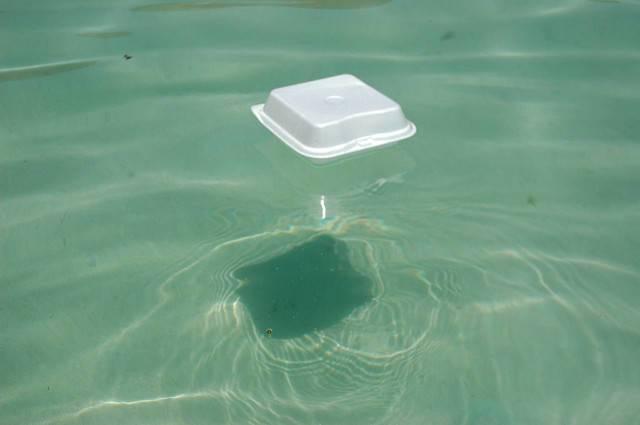
According to an investigative report, the city of San Diego will lose at least $90,000 a year recycling expanded polystyrene foam containers, often known by the trademarked name Styrofoam. While this lightweight packaging material only comprises a small amount of most municipalities' waste streams, environmentalists are quick to point out that foam containers are one of the most "insidious" forms of litter.
Critics of polystyrene foam products point to their composition, which is anywhere from 95 to 98 percent air. On the plus side, these containers are lightweight, which make them a popular choice for food deliveries or to-go orders. But that very light weight means massive volumes of foam must be collected in order for recycling this material to be cost-effective. Such challenges have been behind the failures of recycling efforts in cities such as Chicago.
As a result, many cities, including New York City, have long sought to ban foam containers and to-go cups, instead of dealing with what they describe as a constant stream of garbage.
Packaging trade groups and companies have pushed back hard, however; after legal challenges nixed earlier attempts to ban foam containers in the Big Apple, the city reinstated a ban in May. New York City officials in part defend the ban in part by saying that no matter how advanced any technology may be, the recycling of foam containers is not economically feasible. Dart Container Corporation, one of the largest manufacturers of polystyrene foam containers in the U.S., is one company that has been quick to advocate recycling instead of any ban.
As outlined by the reporter Ry Richard, Dart has also had a hand in preventing any recycling ban from taking shape in San Diego. Rivard's article claims that Dart has contributed over $200,000 to local political campaigns while aggressively lobbying San Diego's city council members. The outcome: despite a city-funded study that concluded any foam recycling effort would only amount to a waste of time and money, the city of 1.4 million people would include foam in its municipal recycling program.
San Diego's mayor, Kevin Faulconer, told Richard in an email that recycling foam was the right path to follow as it amounted to a "public good." He defended the $90,000 loss as a small part of the city's $3.6 billion annual budget, and said that such a program would give the local restaurant and food services industries a break from other regulations and expenses.
Businesses and restaurant trade groups have applauded the San Diego city council's unanimous vote to eschew a ban in favor of recycling. But while some critics of the program could say its costs could escalate in the event residents put even more Styrofoam in the blue bin, there is a huge caveat: only residents living in single-family homes have the option to recycle those pesky square-shaped to-go containers and single-serve beverage cups. Businesses and residents of condominiums or apartments, which often pay private waste management companies to haul away their trash, will not be included in the recycling program.
Environmental groups dismiss foam container recycling plans as a sham. "The plastics industry and the manufacturers of expanded polystyrene are aware of growing public pressure to banish these containers. So, to preserve their market share, they have come up with legislation that seeks to require city residents to 'recycle' this foam," said the Natural Resources Defense Council (NRDC) in a May 9 blog post expressing support for New York City's effort to ban Styrofoam containers.
Image credit: Wonderlane/Flickr

Leon Kaye has written for 3p since 2010 and become executive editor in 2018. His previous work includes writing for the Guardian as well as other online and print publications. In addition, he's worked in sales executive roles within technology and financial research companies, as well as for a public relations firm, for which he consulted with one of the globe’s leading sustainability initiatives. Currently living in Central California, he’s traveled to 70-plus countries and has lived and worked in South Korea, the United Arab Emirates and Uruguay.
Leon’s an alum of Fresno State, the University of Maryland, Baltimore County and the University of Southern California's Marshall Business School. He enjoys traveling abroad as well as exploring California’s Central Coast and the Sierra Nevadas.














